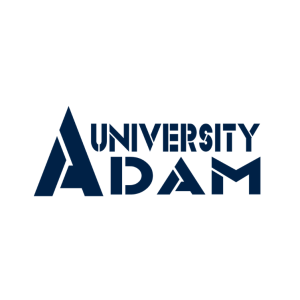
THE GOALS AND OBJECTIVES OF LEARNING
The aim of the discipline is to acquaint students with the basic concepts and to consolidate in practice the skills consists in forming the level of chemical competence of students necessary for understanding the physico-chemical foundations of vital processes and drawing scientific generalizations and modern research methods for studying and solving medical and biological problems.
The tasks of the discipline are:
· obtaining students knowledge of the structure and state of substances (atomic nucleus, atom, molecule, substance) and the chemical process (stoichiometry, equilibrium, kinetics);
· to form an idea of the relationship between the structure and chemical properties of the main classes of natural organic compounds and biopolymer PLACE OF THE DISCIPLINE IN THE STRUCTURE OF THE
BEP (Basic Educational Program) and HPE (High Professional Education)
The academic discipline “Chemistry” refers to the natural science cycle of disciplines in specialty 560001 "General Medicine" of higher professional medical education.
The program of this discipline is worked out in accordance with Basic Educational Program of ADAM. according to the modern requirements of the Kyrgyz Republic, and
The study of this discipline is based on the knowledge of the general education program in the following subjects: General Chemistry
For successful mastering of “Chemistry” students should
know:
· Basic knowledge about atomic/molecular structure of the matter
· Rutherfordian theory of atoms
· Basic concept of moles, molar mass, molar volume
· Solving elementary tasks in chemistry
be able to:
· Use periodic table for molar mass calculating
· Use solubility table
· Balance chemical reactions
As a result of studying of discipline students should:
know:
· Fundamentals of chemical thermodynamics of acid-alkaline equilibrium of sorption processes and electrochemistry;
· Properties of complex compounds.
· Physico-chemical properties of disperse systems;
· General questions kinetics of chemical reactions
· the theory of oxidation-reduction reactions
to be able to:
· use the educational, scientific, popular scientific literature, to perform basic thermodynamic and kinetic calculations;
· Rightly choose and perform basic physical-chemical methods of analysis;
· Own-methods of preparing solutions from tasks with concentration;
· Methods of potentiometric determination (direct and indirect) of pH solutions;
· Methods of qualitative determination of cations and anions.
Chemistry is an integrated educational discipline with broad interdisciplinary connections.
Mastering general chemistry will be necessary for understanding following subjects in further education process: Biochemistry, Physiology, Pharmacology,
The program for the discipline “General chemistry” is compiled in accordance with the requirements of the State Educational Standard for specialty 560001 “General Medicine” and in accordance with Basic Educational Program of Adam
This program provides:
- achievement of following learning outcomes
L.O.1. Ability to take basic knowledge of natural-humanitarian, social, fundamental biomedical and clinical disciplines in the diagnosis, treatment, prevention and rehabilitation of patients of different ages within their competence.
L.O.5. Ability to participate in research work using basic research skills.
L.O.6. Possession of skills in moral and cultural behavior, critical thinking and aspiration for self-improvement.
- formation of students’ general cultural competencies (CC), professional competencies (PC), instrumental competencies (IC) and socio-personal competencies (SPC):
SC-1 - able to analyze socially significant problems and processes, practical use of methods of
humanitarian, scientific, biomedical and clinical sciences in various professional and social activities;
SC-5 capable of logical and reasoned analysis, public speech, discussion and debate, to implement educational activities, to cooperate and resolve conflicts; to tolerance;
IC-4 - a willingness to work with information from a variety of sources.
CC-2- able and willing to reveal the scientific essence of the problems arising in the course of
professional activity of a doctor;
CC-3 - able to analyze health information, drawing on the principles of evidential medicine;
PC-27- is ready to explore scientific and medical information, domestic and foreign experience on thesubject of the research;
For the successful achievement the tasks and aims of the discipline, the following teaching methods are used:
1. Ideological work
2. Solving of the examples on the whiteboard
3. Video lessons
4. PPT Presentations
- Учитель: Ilya Domashov
- Учитель: Parishta Jolueva
- Учитель: Карина Цой
- Учитель: Алтынай Чубакова
